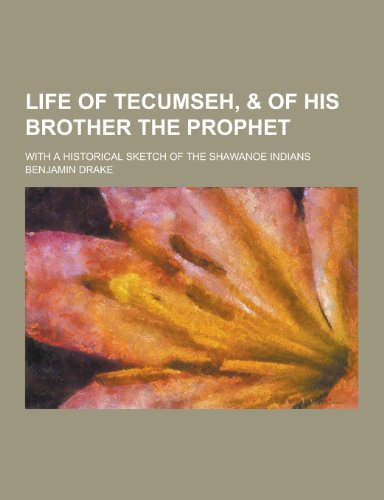
Product Description
This historic book may have numerous typos and missing text. Purchasers can usually download a free scanned copy of the original book (without typos) from the publisher. Not indexed. Not illustrated. 1856 edition. Excerpt: … as it speaks of the commander of the allied army in terms the most disrespectful. We are enabled to state, on the authority of John Chambers, Esq. of Washington, Kentucky, who was one of the aids of general Harrison in the campaign of 1813, that the speech as given above, is truly translated ; and was actually dedelivered to general Proctor under the circumstances above related. When the battle of the Thames had been fought, the British commander sought safety in flight. He was pursued by colonels Wood, Chambers, and Todd, and three or four privates. He escaped, but his baggage was captured. Colonel Chambers was present when his port-folio was opened, and among the papers, a translation of this speech was found. In remarking upon the fact subsequently, to some of the British officers, they stated to colonel Chambers that the speech was undoubtedly genuine; and that general Proctor had ordered it to be translated and exhibited to .his officers, for the purpose of showing them the insolence with which he was treated by Tecumseh, and the necessity he was under of submitting to every species of indignity from him, to prevent that chief from withdrawing his forces from the contest or turning his army against the British troops. CHAPTER XIV. Retreat of the combined British and Indian army to the river Thamesskirmish at Chatham with the troops under general Harrison–Tecum seh slightly wounded in the arm–battle on the Thames on the 5th of October–Tecumseh’s death. Shortly after the delivery of the speech quoted in the foregoing chapter, a considerable body of Indians abandoned general Proctor, and crossed the strait to the American shore. Tecumseh himself again manifested a disposition to take his final leave of the British service….

